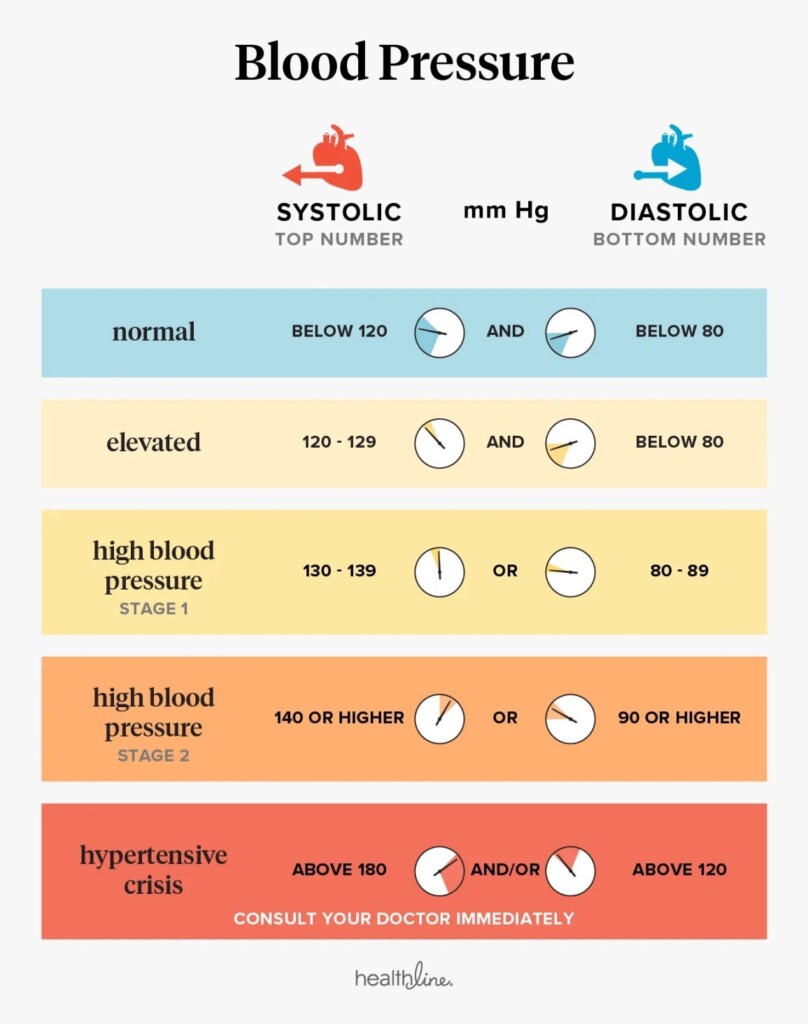Maintaining healthy blood pressure is crucial for overall well-being. Blood pressure is a measurement of the force exerted by circulating blood on the walls of the arteries. It is expressed in two values: systolic pressure and diastolic pressure. Understanding the normal ranges for blood pressure can help you monitor your cardiovascular health effectively.

What is Blood Pressure?
Blood pressure is a vital sign that reflects the pressure exerted on the artery walls as blood flows through them. It is measured in millimeters of mercury (mmHg) and consists of two numbers: systolic pressure over diastolic pressure. The systolic pressure represents the pressure during heartbeats when the heart contracts, while the diastolic pressure reflects the pressure between heartbeats when the heart is at rest.
Normal Blood Pressure Ranges
The following are the normal ranges for blood pressure in adults:
- Normal: Systolic pressure below 120 mmHg and diastolic pressure below 80 mmHg.
- Elevated: Systolic pressure between 120-129 mmHg and diastolic pressure below 80 mmHg.
- Hypertension Stage 1: Systolic pressure between 130-139 mmHg or diastolic pressure between 80-89 mmHg.
- Hypertension Stage 2: Systolic pressure 140 mmHg or higher, or diastolic pressure 90 mmHg or higher.
- Hypertensive Crisis: Systolic pressure higher than 180 mmHg and/or diastolic pressure higher than 120 mmHg. Emergency medical attention is required.
Understanding the Importance of Normal Blood Pressure
Maintaining normal blood pressure is essential for preventing various health complications. High blood pressure, or hypertension, can strain the heart, damage blood vessels, and increase the risk of heart disease, stroke, and other cardiovascular problems. On the other hand, low blood pressure, or hypotension, can cause dizziness, fainting, and inadequate blood flow to vital organs.
Monitoring and Managing Blood Pressure
Regular monitoring of blood pressure is vital, especially for individuals with a history of high or low blood pressure. You can measure your blood pressure using a blood pressure monitor at home or by visiting a healthcare professional. Lifestyle modifications such as maintaining a healthy diet, engaging in regular exercise, managing stress, limiting sodium intake, and avoiding smoking can help manage blood pressure effectively.
Understanding and monitoring your blood pressure is crucial for maintaining cardiovascular health. The normal ranges for blood pressure serve as a guideline to assess your blood pressure readings. If you have concerns about your blood pressure, it is recommended to consult with a healthcare professional who can provide personalized guidance and treatment options.
As an Amazon Associate we earn from qualifying purchases through some links in our articles.




